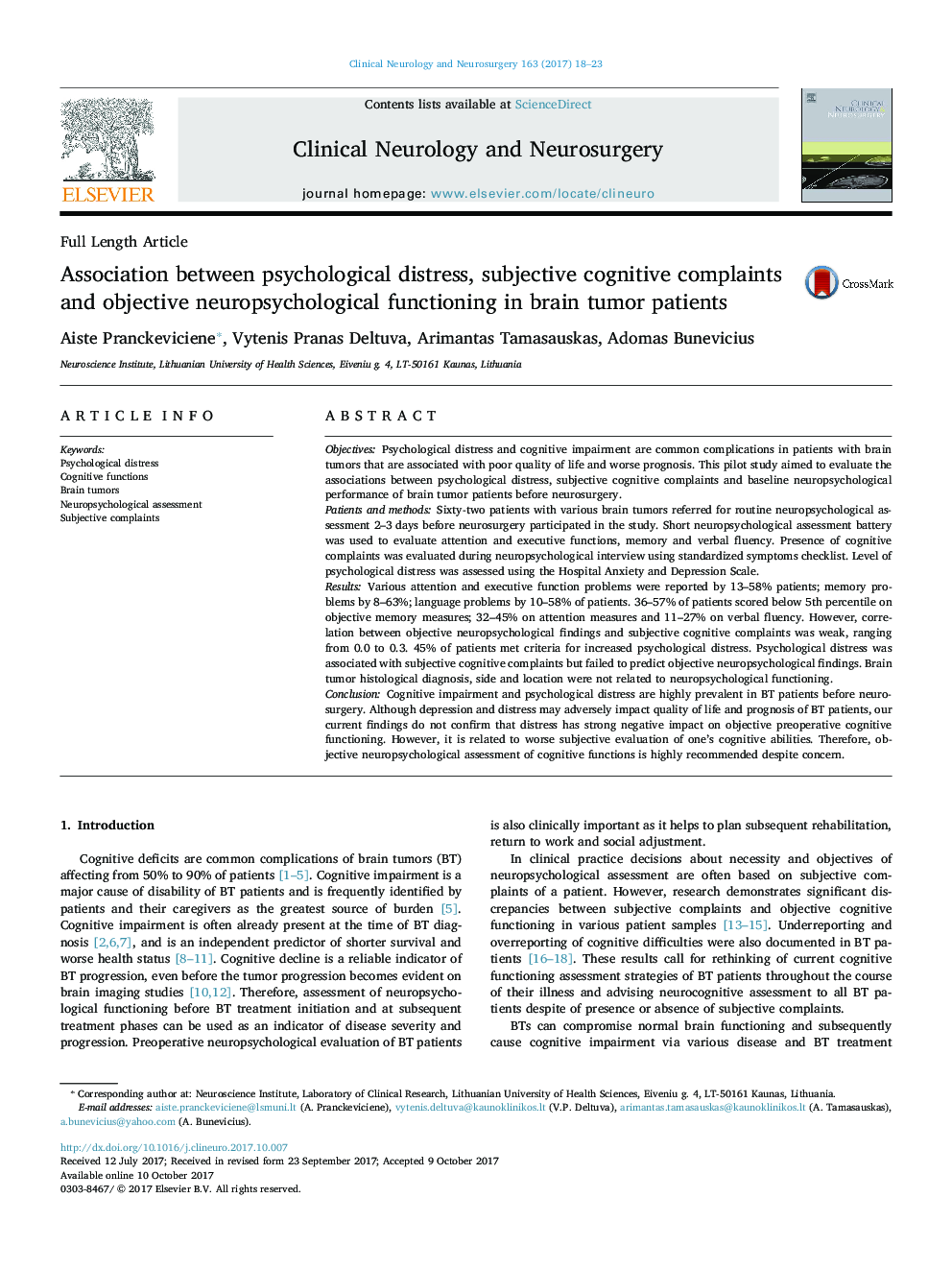| کد مقاله | کد نشریه | سال انتشار | مقاله انگلیسی | نسخه تمام متن |
|---|---|---|---|---|
| 5626993 | 1579659 | 2017 | 6 صفحه PDF | دانلود رایگان |
- Cognitive impairment and psychological distress are highly prevalent in brain tumor patients before neurosurgery.
- Preoperative distress is related to worse subjective evaluation of one's cognitive abilities and symptoms over-reporting.
- Objective preoperative neuropsychological assessment is recommended despite of absence of patients' subjective complaints.
ObjectivesPsychological distress and cognitive impairment are common complications in patients with brain tumors that are associated with poor quality of life and worse prognosis. This pilot study aimed to evaluate the associations between psychological distress, subjective cognitive complaints and baseline neuropsychological performance of brain tumor patients before neurosurgery.Patients and methodsSixty-two patients with various brain tumors referred for routine neuropsychological assessment 2-3Â days before neurosurgery participated in the study. Short neuropsychological assessment battery was used to evaluate attention and executive functions, memory and verbal fluency. Presence of cognitive complaints was evaluated during neuropsychological interview using standardized symptoms checklist. Level of psychological distress was assessed using the Hospital Anxiety and Depression Scale.ResultsVarious attention and executive function problems were reported by 13-58% patients; memory problems by 8-63%; language problems by 10-58% of patients. 36-57% of patients scored below 5th percentile on objective memory measures; 32-45% on attention measures and 11-27% on verbal fluency. However, correlation between objective neuropsychological findings and subjective cognitive complaints was weak, ranging from 0.0 to 0.3. 45% of patients met criteria for increased psychological distress. Psychological distress was associated with subjective cognitive complaints but failed to predict objective neuropsychological findings. Brain tumor histological diagnosis, side and location were not related to neuropsychological functioning.ConclusionCognitive impairment and psychological distress are highly prevalent in BT patients before neurosurgery. Although depression and distress may adversely impact quality of life and prognosis of BT patients, our current findings do not confirm that distress has strong negative impact on objective preoperative cognitive functioning. However, it is related to worse subjective evaluation of one's cognitive abilities. Therefore, objective neuropsychological assessment of cognitive functions is highly recommended despite concern.
Journal: Clinical Neurology and Neurosurgery - Volume 163, December 2017, Pages 18-23
